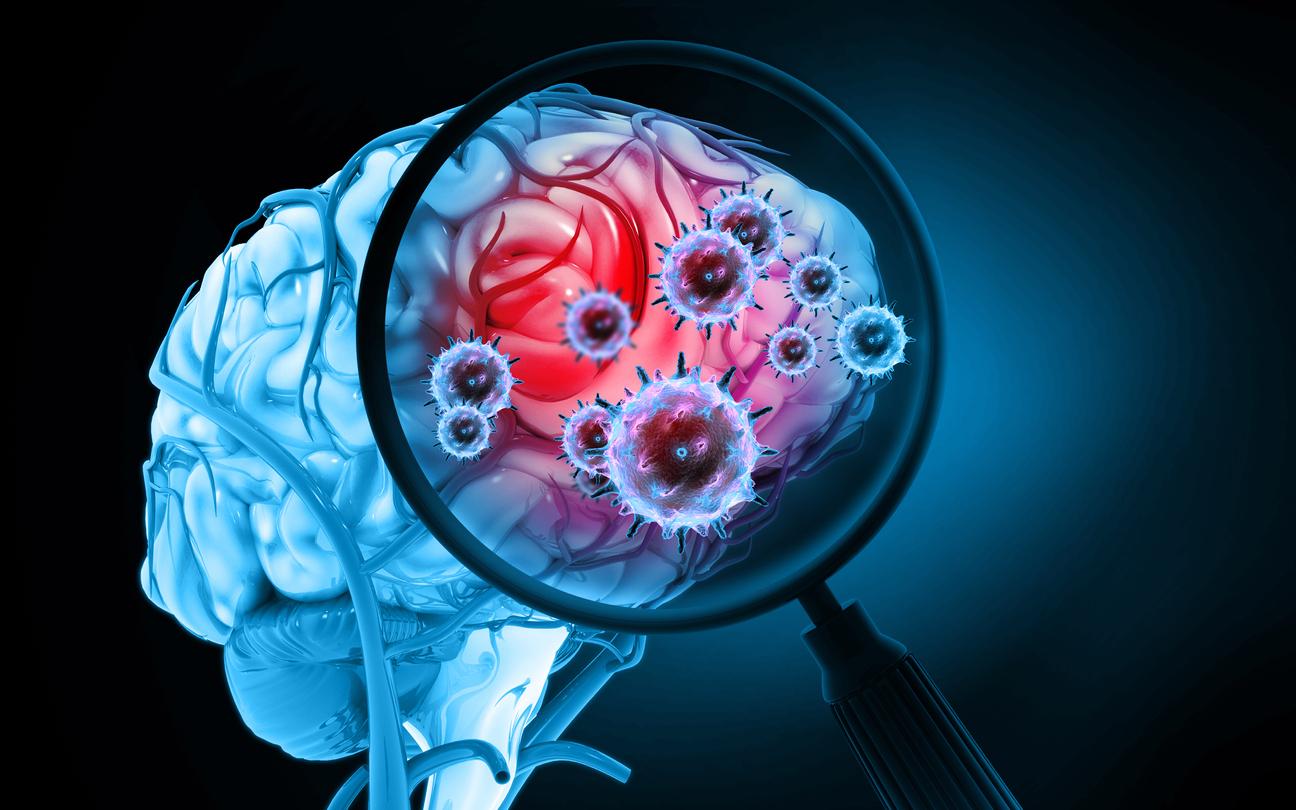A new study reveals that Sars-CoV-2 spreads throughout the body, including the brain. It can also persist there for almost eight months.

- An American study published in December 2022 shows that patients who contracted a severe form of Covid-19 showed a decline in their cognitive performance that mimicked accelerated aging.
- We talk about long covid when the patient still feels symptoms beyond 4 weeks after infection.
Researchers from the University of Minnesota wanted to determine the location and persistence of Sars-CoV-2 in the body. To do this, they carried out the autopsies of 44 people who died of Covid-19.
Sars-CoV-2: traces of the virus in the brain
For this study presented in Nature, tissues were taken from the 44 individuals who died of Covid-19. A brain sample was taken from 11 of them.
Not surprisingly, the analysis showed that Sars-CoV-2 primarily infects and damages the airways and lung tissue. On the other hand, more surprisingly, traces of the virus have also been identified in other parts of the body. The researchers found RNA from the virus in 84 areas and bodily fluids, including the brain, up to 230 days (nearly eight months) after the onset of symptoms for one case.
While coronavirus RNA and proteins were spotted in the hypothalamus and cerebellum of one patient as well as the spinal cord and basal ganglia of two others, scientists noticed there was little damage to brain tissue, “despite a significant viral load”.
Additionally, viable Sars-CoV-2 was isolated in 25 of 55 samples tested (45%). It has been spotted in various tissues, including the brain, heart, lymph nodes, digestive tract, adrenal gland, and eyes.
Useful work also to fight against long covid
The study’s lead author, Dr. Daniel Chertow, explained in a statement from the University of Minnesota that prior to his work, “the thinking on the ground was that Sars-CoV-2 was primarily a respiratory virus.”
For him, the discovery of the presence of Sars-CoV-2 throughout the body helps to better understand the development of long covid. The expert ensures that his work, disseminated to his colleagues several months ago, has enabled “to explore the relationship between extensively infected body tissues and long Covid, or symptoms that persist for weeks and months after infection”.


















